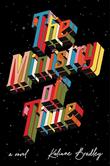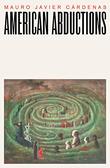
by Arinze Ifeakandu ‧ RELEASE DATE: June 7, 2022
Deftly capturing the richness and dangers of romantic connection, these stories complicate and reimagine queer narratives.
Awards & Accolades
Our Verdict

GET IT
Kirkus Reviews'
Best Books Of 2022
Kirkus Prize
finalist
Nine blazing stories about the joys and tribulations of queer love in contemporary Nigeria.
The stories of Ifeakandu’s debut collection are nothing less than breathtaking and daring, each exploring queer relationships in all their nuanced and unpredictable configurations: secret romances, brief but passionate encounters, relationships that are tested by cultural pressures. At the centers of these carefully constructed stories are queer men whose identities and romances are constantly ruptured by political turmoil and by stratified social and cultural ideas of masculinity. What, these characters ask themselves, makes a man? How to reconcile the tension between one’s interior self—one’s burning hopes and desires—and the expectations that family and tradition have foisted on him? The opening story, “The Dreamer’s Litany,” examines the relationship between Auwal, a small-business owner, and Chief, a wealthy and flamboyant man who promises to help Auwal with his business for a price; the two men develop a sexual relationship, though Auwal is not convinced he can really trust Chief and his wife begins to suspect there’s something taking place between them. “Where the Heart Sleeps” is a moving tale of Nonye, a young woman returning to her father’s house for his funeral. There, she gradually opens up to Tochukwu, her father’s partner, whom she has resented for taking her father from her mother and her. The title story follows the romance of Lotanna and Kamsi, two college boys who must constantly renegotiate their commitments to each other as family and social pressure threaten to pry them apart. In “What the Singers Say About Love,” a young musician’s ascent into the public eye requires that he subdue major pieces of himself and pull away from the man he loves. Using a variety of forms, including stories broken up into numbered sections and stories employing first-, second-, and third-person narrators, many of these tales bear the emotional weight and complexity of novels, with the reader pulled forward by lucid prose and excellent pacing. Most compelling, though, are the unforgettable characters and the relationships that hurl them into the unknown and dangerous depths of their desires.
Deftly capturing the richness and dangers of romantic connection, these stories complicate and reimagine queer narratives.Pub Date: June 7, 2022
ISBN: 978-1-7345907-1-5
Page Count: 224
Publisher: A Public Space Books
Review Posted Online: May 10, 2022
Kirkus Reviews Issue: June 1, 2022
Share your opinion of this book
More About This Book
PERSPECTIVES

by Percival Everett ‧ RELEASE DATE: March 19, 2024
One of the noblest characters in American literature gets a novel worthy of him.
Mark Twain's Adventures of Huckleberry Finn as told from the perspective of a more resourceful and contemplative Jim than the one you remember.
This isn’t the first novel to reimagine Twain’s 1885 masterpiece, but the audacious and prolific Everett dives into the very heart of Twain’s epochal odyssey, shifting the central viewpoint from that of the unschooled, often credulous, but basically good-hearted Huck to the more enigmatic and heroic Jim, the Black slave with whom the boy escapes via raft on the Mississippi River. As in the original, the threat of Jim’s being sold “down the river” and separated from his wife and daughter compels him to run away while figuring out what to do next. He's soon joined by Huck, who has faked his own death to get away from an abusive father, ramping up Jim’s panic. “Huck was supposedly murdered and I’d just run away,” Jim thinks. “Who did I think they would suspect of the heinous crime?” That Jim can, as he puts it, “[do] the math” on his predicament suggests how different Everett’s version is from Twain’s. First and foremost, there's the matter of the Black dialect Twain used to depict the speech of Jim and other Black characters—which, for many contemporary readers, hinders their enjoyment of his novel. In Everett’s telling, the dialect is a put-on, a manner of concealment, and a tactic for survival. “White folks expect us to sound a certain way and it can only help if we don’t disappoint them,” Jim explains. He also discloses that, in violation of custom and law, he learned to read the books in Judge Thatcher’s library, including Voltaire and John Locke, both of whom, in dreams and delirium, Jim finds himself debating about human rights and his own humanity. With and without Huck, Jim undergoes dangerous tribulations and hairbreadth escapes in an antebellum wilderness that’s much grimmer and bloodier than Twain’s. There’s also a revelation toward the end that, however stunning to devoted readers of the original, makes perfect sense.
One of the noblest characters in American literature gets a novel worthy of him.Pub Date: March 19, 2024
ISBN: 9780385550369
Page Count: 320
Publisher: Doubleday
Review Posted Online: Dec. 16, 2023
Kirkus Reviews Issue: Jan. 15, 2024
Share your opinion of this book
More About This Book
PERSPECTIVES
PERSPECTIVES

by Barbara Kingsolver ‧ RELEASE DATE: Oct. 18, 2022
An angry, powerful book seething with love and outrage for a community too often stereotyped or ignored.
Awards & Accolades
Likes

52
Our Verdict

GET IT
Kirkus Reviews'
Best Books Of 2022
New York Times Bestseller
Pulitzer Prize Winner
Inspired by David Copperfield, Kingsolver crafts a 21st-century coming-of-age story set in America’s hard-pressed rural South.
It’s not necessary to have read Dickens’ famous novel to appreciate Kingsolver’s absorbing tale, but those who have will savor the tough-minded changes she rings on his Victorian sentimentality while affirming his stinging critique of a heartless society. Our soon-to-be orphaned narrator’s mother is a substance-abusing teenage single mom who checks out via OD on his 11th birthday, and Demon’s cynical, wised-up voice is light-years removed from David Copperfield’s earnest tone. Yet readers also see the yearning for love and wells of compassion hidden beneath his self-protective exterior. Like pretty much everyone else in Lee County, Virginia, hollowed out economically by the coal and tobacco industries, he sees himself as someone with no prospects and little worth. One of Kingsolver’s major themes, hit a little too insistently, is the contempt felt by participants in the modern capitalist economy for those rooted in older ways of life. More nuanced and emotionally engaging is Demon’s fierce attachment to his home ground, a place where he is known and supported, tested to the breaking point as the opiate epidemic engulfs it. Kingsolver’s ferocious indictment of the pharmaceutical industry, angrily stated by a local girl who has become a nurse, is in the best Dickensian tradition, and Demon gives a harrowing account of his descent into addiction with his beloved Dori (as naïve as Dickens’ Dora in her own screwed-up way). Does knowledge offer a way out of this sinkhole? A committed teacher tries to enlighten Demon’s seventh grade class about how the resource-rich countryside was pillaged and abandoned, but Kingsolver doesn’t air-brush his students’ dismissal of this history or the prejudice encountered by this African American outsider and his White wife. She is an art teacher who guides Demon toward self-expression, just as his friend Tommy provokes his dawning understanding of how their world has been shaped by outside forces and what he might be able to do about it.
An angry, powerful book seething with love and outrage for a community too often stereotyped or ignored.Pub Date: Oct. 18, 2022
ISBN: 978-0-06-325-1922
Page Count: 560
Publisher: Harper/HarperCollins
Review Posted Online: July 13, 2022
Kirkus Reviews Issue: Aug. 1, 2022
Share your opinion of this book
More by Barbara Kingsolver
BOOK REVIEW
BOOK REVIEW
BOOK REVIEW
More About This Book
SEEN & HEARD
PERSPECTIVES
SEEN & HEARD
© Copyright 2024 Kirkus Media LLC. All Rights Reserved.
Hey there, book lover.
We’re glad you found a book that interests you!
We can’t wait for you to join Kirkus!
It’s free and takes less than 10 seconds!
Already have an account? Log in.
OR
Trouble signing in? Retrieve credentials.
Welcome Back!
OR
Trouble signing in? Retrieve credentials.
Don’t fret. We’ll find you.





